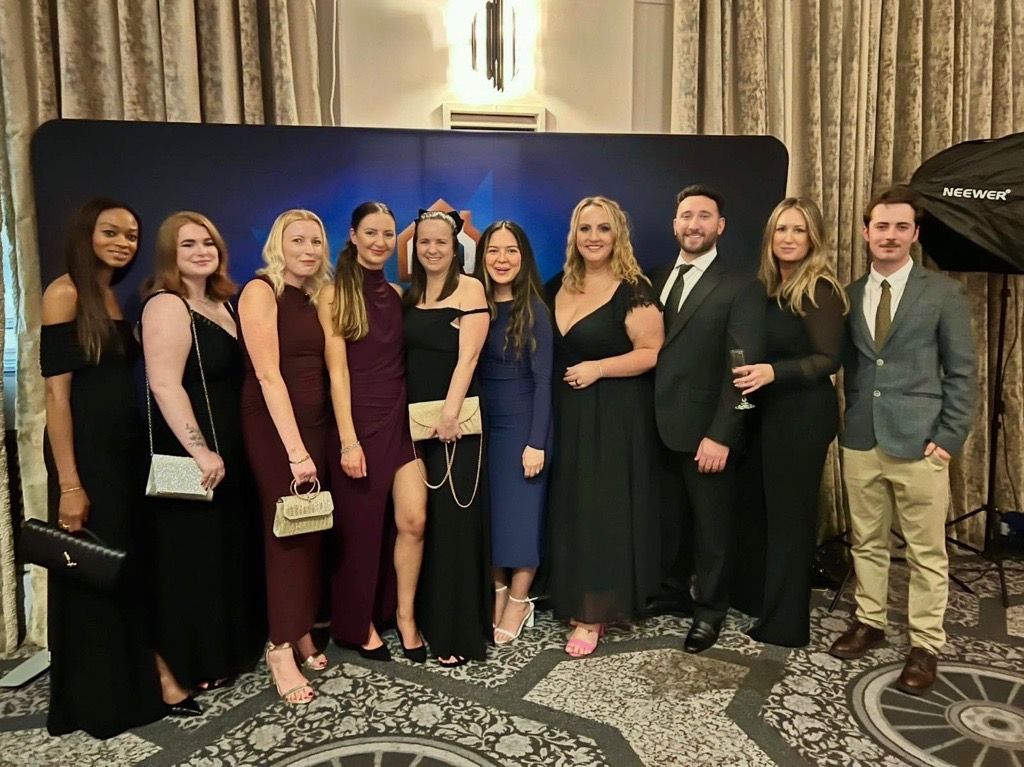Can Outsourced HR Professionals Be Agents of Their Clients? Understanding the Legal Risks

Having a working relationship with an outsourced HR provider can make day-to-day people management easier for many businesses. But what happens when that relationship goes a step too far? In his latest insight, Employment Law Consultant Richard Hiron explores when outsourced HR professionals may legally become agents of their clients, and why this matters.
Why Outsourced HR Services Appeal to UK Businesses
Outsourced HR services offer a range of benefits that have made them increasingly attractive to UK employers. These include:
- Cost-effectiveness compared to employing a full-time HR team
- Greater freedom in advising clients than being an in-house HR adviser
- A sense of legal separation, making HR advisers appear at arm’s length from internal decisions
However, recent case law from the Employment Appeal Tribunal (EAT) suggests that outsourced HR professionals may not always be as independent as they assume, and that they need to be very careful not just about the contractual terms of their arrangements with their clients, but also the practical application of the relationship.
Handa v The Station Hotel: What Happened?
The case of Handa v The Station Hotel (Newcastle) Limited and others [2025] EAT 62 raised important questions about the legal standing of outsourced HR professionals.
We won’t linger on the details, because you didn’t come here for a lecture in employment law, but in essence:
- An employed director reported potential financial misconduct, which could have been classified as whistleblowing (also known as “protected disclosures”).
- Complaints from other staff members about bullying and harassment were then made against that director.
- One outsourced HR consultant was instructed to investigate those complaints and recommended that disciplinary action against the director be considered.
- A second outsourced HR professional conducted the disciplinary hearing and advised that the employer would be “justified” in dismissing the director for gross misconduct - advice issued in collaboration with the employer’s solicitors.
- Ultimately, the employer dismissed the director, based on the outsourced HR professional’s recommendation.
What Is an Agency Relationship in Employment Law?
It is not enough to simply provide a service or act helpfully to become someone’s agent in the eyes of the law. Legally, an agent is someone who has been authorised to act on behalf of another person or organisation, often with the ability to make decisions that directly affect that person’s legal or financial position.
Typically, an agent is someone trusted to act in another’s best interests, which is why many agents are also fiduciaries. Trustees, company directors, financial advisers, business partners, and solicitors are common examples of these. What they have in common is the authority to affect relationships between the person or organisation they represent and third parties.
Crucially, there must usually be more than just a contract for services for a person to be considered an agent. An agency relationship arises when a person has decision-making authority and is actively representing the interests of someone else with their approval. Without that, no matter how beneficial or reliable the service provided, an agency relationship is unlikely to be found.
What Would Make an Outsourced HR Professional an Agent?
In the Handa case, neither of the two outsourced HR professionals was found to be an agent in the decision to dismiss the employed director. But that doesn't mean an agency relationship couldn’t have existed elsewhere.
Here’s where the legal line gets blurry:
1. Performing Core Employer Functions
If an outsourced HR consultant performs functions that are typically reserved for the employer, such as conducting grievance processes or disciplinary hearings, they may be considered the employer’s agent. This is especially the case where employees or third parties deal directly with the HR provider, and the employer has little or no involvement.
2. Going Beyond Contractual Services
Even where a written contract exists, carrying out roles that go beyond pure service delivery can give rise to an agency relationship. Whilst a fiduciary relationship is a key hallmark of agency, it is not the only factor in determining whether an outsourced HR professional will be considered an agent. This may include making final decisions on matters such as pay, dismissal, or internal procedures.
3. Exercising Authority Without Oversight
Where the HR provider is granted authority to act independently, for example, to run a disciplinary process from start to finish without significant input from the employer, they may be legally classified as an agent.
4. Evidence of Collusion or Shared Control
The closer the working relationship between the employer and the HR consultant, the more likely it is that the agency will be inferred. In the Handa case:
- The first HR professional merely recommended a disciplinary process.
- The second HR professional reviewed the evidence and concluded dismissal was justified, but did not carry it out herself.
If either had gone a step further and directly made the dismissal or made other decisions on behalf of the employer, they would likely have crossed the line into agency.
5. Perception Alone Is Not Enough
An employee’s perception that an HR professional is acting on behalf of the employer is not enough by itself to create a legal agency, but might be important if combined with other factors. However, in Handa, the director’s claims of being victimised after whistleblowing did not automatically make the HR professionals agents of the employer.
How Outsourced HR Professionals Can Avoid Legal Risk
So, what can HR consultants do to protect themselves?
Be Clear in Your Contracts
The contract with your client should clearly state the limits of your role. Avoid any language that implies you can make final decisions on behalf of the employer, especially regarding disciplinary action, grievance outcomes, or dismissals. Simply saying that you are not your client’s agent is unlikely to be enough, especially if your actions do not match what your contract with your client says.
Stay Within Advisory Boundaries
Advise, recommend, support, but don’t decide. Let your clients make the final call, even if you believe a certain outcome is justified. This is where the line between adviser and agent is often drawn.
Avoid Acting Like an Employee
Don’t allow staff to contact you directly for day-to-day HR matters unless this is carefully managed through a defined service agreement. Even then, remember that providing services like payroll, internal HR policies, grievances, or disciplinaries puts you in sensitive territory.
Seek Legal Advice When in Doubt
If you find yourself being asked to take actions that go beyond your usual service scope, pause and take legal advice. It may save you significant time, stress and potential liability later.
Why This Case Matters for Employment Law Professionals
The Handa decision serves as an important reminder that legal responsibility doesn't always rest neatly with the employer. If you’re working with HR consultants or are one yourself, understanding where legal boundaries lie is critical.
This is especially important for:
- Solicitors working with SMEs who rely on outsourced HR providers
- HR professionals offering freelance or agency services
- Employers who want to reduce legal risk when outsourcing HR functions
Specialist Advice from Woodstock Legal Services
Worried about becoming responsible for your client’s employment decisions?
At Woodstock Legal Services, we specialise in employment law advice tailored to HR professionals and consultants. Richard Hiron, our experienced Employment Law Consultant, has worked directly in the HR sector and regularly advises outsourced HR professionals across the UK.
Whether you need advice on contracts, investigations, disciplinaries or complex whistleblowing concerns, Richard is here to support you.
If you’re looking for practical, no-nonsense employment law advice, get in touch with Richard Hiron, Consultant Solicitor, at r.hiron@woodstocklegalservices.co.uk or fill out the form below.
Contact Us
News & Insights











